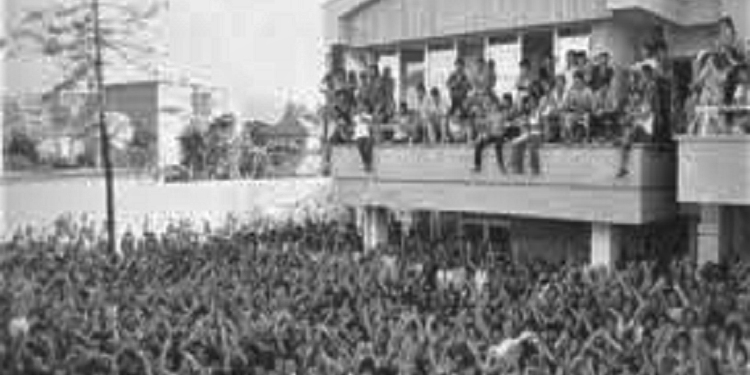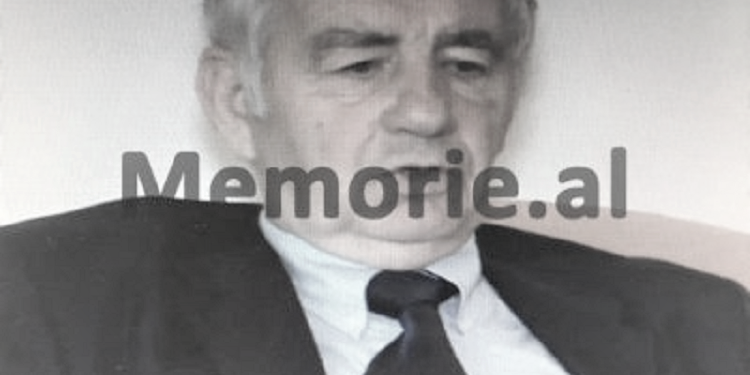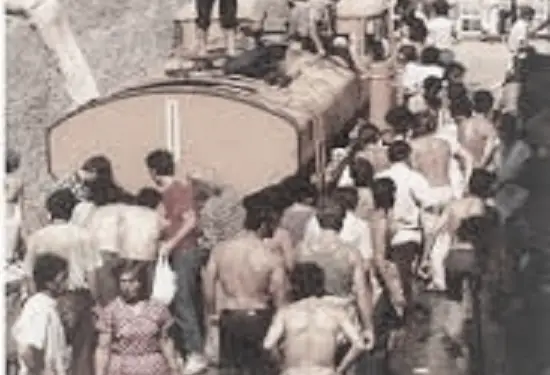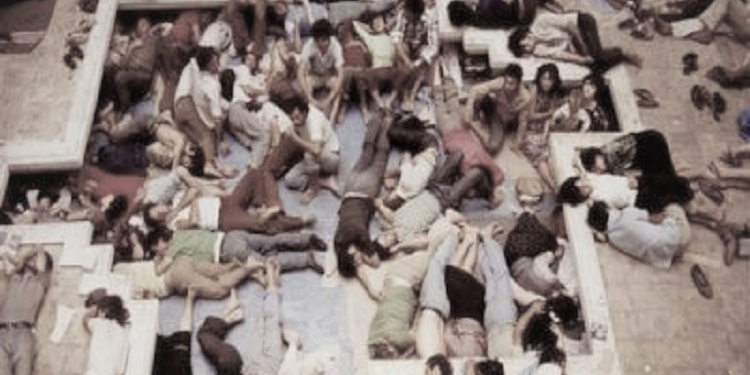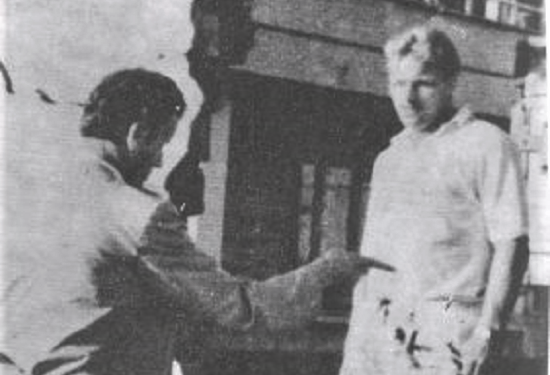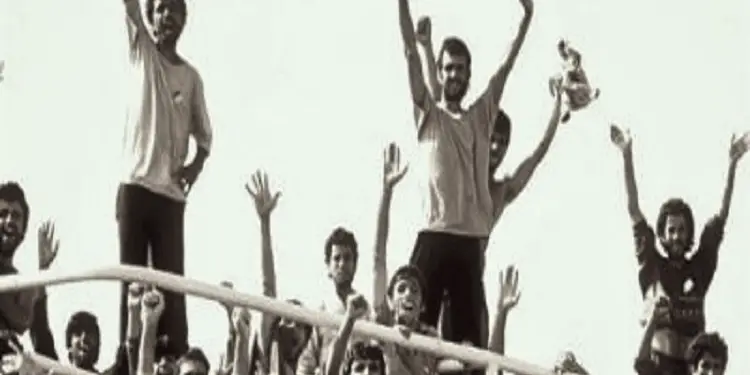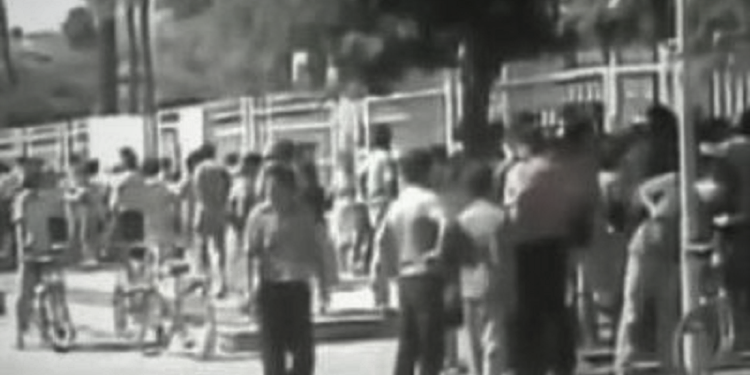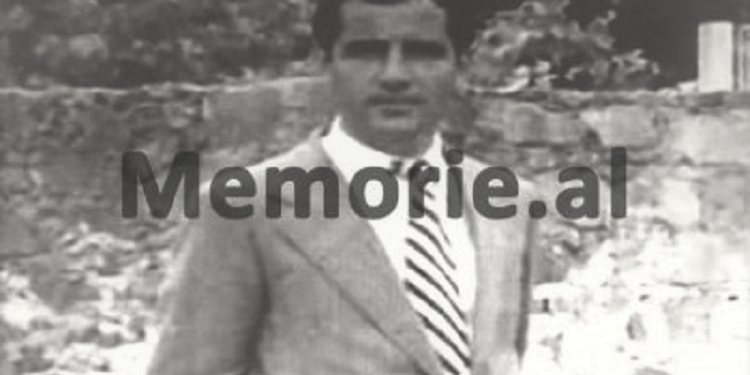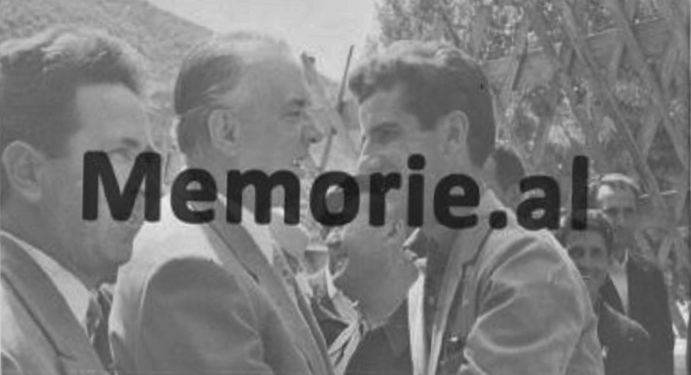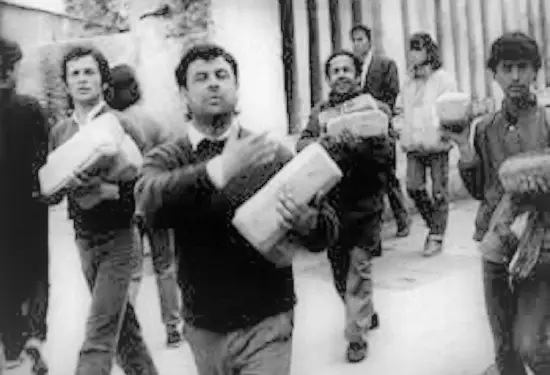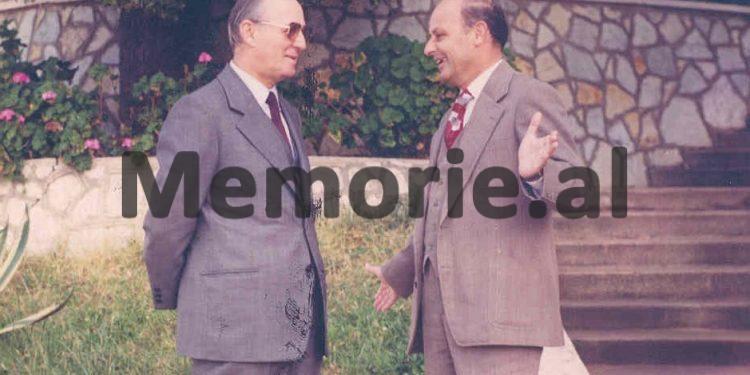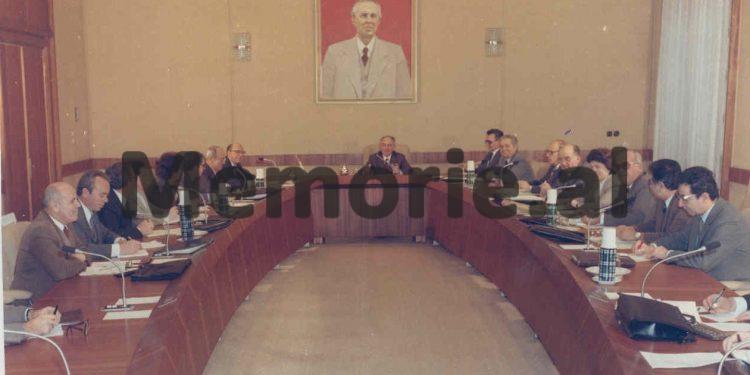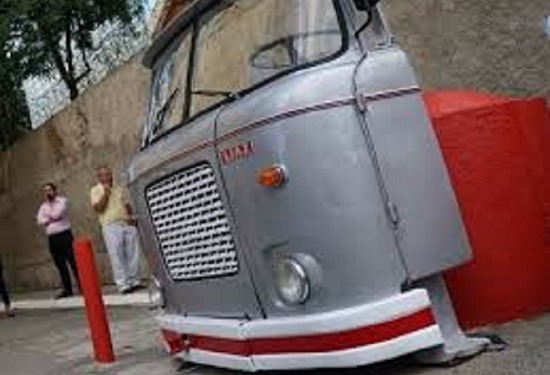Darsnor Kaloçi
Memorie.al publishes the interview with Mr. Preng Vorfi, former Propaganda instructor of the Party Committee of Region no. 3 in Tirana, which recounts the events that took place in July 1990, with the foreign embassies in Tirana and the meetings held by the state party of that time. How were the meetings of the Headquarters that was created for those events conducted and what was said there by Prime Minister Adil Çarçani, Minister of Internal Affairs, Hekuran Isai, Secretary of the Central Committee of the ALP, Xhelil Gjoni, secretary of the Tirana Party Committee, Pirro Lako, the General Director of the Police, Dilaver Bengasi, the Director of the Internal Affairs Directorate of Tirana, Zef Loka, the General Prosecutor, Rrapi Mino, the Chief Investigator of the Republic, Qemal Lame, etc., senior cadres of that regime. The tasks that the Headquarters created for the events of July 1990, gave to party and state functionaries and their subordinates to prevent mass entry into embassies, serving in closed premises near the headquarters of diplomatic missions accredited at the time in Tirana and the debates with some of the foreign diplomats, who called on the citizens to enter their headquarters.
Mr. Worf, what do you remember about July 1990
July 1990 reminds me of the days when Tirana was confronted for the first time, with an unusual phenomenon in the entire almost 45-year history of the communist regime. Those days, hundreds of young men and women, mostly from the working class, but also quite intellectual, broke the long silence against the communist regime and headed to the embassies, seeing them as the only way to go west, for a life better. This, the event of July 2, 1990, was the epilogue of what had been simmering in our country for almost a decade. Albania had been isolated for decades and the directive of the party-state that: “we build socialism with our own strength”, had failed and had become a stale slogan, which had no value. All the countries of Eastern Europe had changed course, while the Albanian government of that time, with arrogance, defended the idea that: “it was the only one building socialism in the world”. While in those years, there was neither work nor production; Ramiz Alia gave pathetic speeches, praising Enver Hoxha. I made this parenthesis to say that: those severe traumas that that regime was facing at that time, i.e. the event of July 2, 1990, were the result of a wrong policy of that regime itself, which led to a complete failure of the country’s economy. Since from 1980 onwards, almost no work was done and industrial, agricultural and livestock production was asphyxiated to the point of complete paralysis. As a result, the people lived in complete poverty and to escape from that situation, the government had imposed tolls rationing certain food items. But with all those measures, the situation worsened day by day, until the people ran out of patience and exploded with the events of the embassies.
In the period when the event of opening the embassies took place in July 1990, where did you work?
At that time I was working in the apparatus of the Party Committee of the Region No. 3 of Tirana, with the task of Propaganda instructor, a task which I then exercised in the Party Committee of the District of Tirana, when all the regions were united together and I served there until the end of 1991.
Can you tell us that: before July 2, was there knowledge or different signals in the party bodies of that time, related to the event that happened afterwards with the embassies?
As I said a little above, the events of July 2 were the result of several other events that had happened before. In Albania, in 1990, some previously unknown phenomena began to appear. Young men and women no longer went to escape from the land state border with Yugoslavia, or Greece and the sea border with Italy, but aimed at foreign embassies in Tirana. This started in 1985 with the Popa family, which after being stuck in the Italian embassy for 5 years, seeking political asylum, in May 1990, won that right and was allowed to leave for Italy. Meanwhile, on March 26, 1990, the Kavaja police detained several young people, which caused a crowd of people to protest in front of the police building, throwing slogans: “Freedom-Democracy”, “Free our comrades”, “Down dynasty”, etc. On April 3, 1990, on the boulevard “Martyrs of the Nation” in Tirana, explosives were placed on the bust of Stalin. On April 16 of the same year, in the city of Shkodra, explosives were placed on the bust of Enver Hoxha. All these actions, and others that were happening at that time in Albania, had a political character and they showed that Enver Hoxha’s regime, now under the leadership of Ramiz Ali, had its days numbered.
What was the information that came from the apparatuses of the Party Committees of the regions of Tirana, in which you worked at that time?
On June 30, 1990, a young man found the moment when the door to the courtyard of the residence of the French ambassador in Tirana was open and entered. The service police entered the yard and in the presence of the French ambassador, who was pulling the boy by the arms to protect him, used force against him, managing to pull him out. The French ambassador immediately made a note of protest to the Foreign Ministry. In the same way, some young people had also entered some other embassies, 6 people in the Chinese embassy, some others in the Turkish embassy, whom she represented diplomatically, took them and settled them in the “Arbëria” hotel. While these events were taking place, with hundreds of others from Tirana, but also from different districts of the country, they spent the night in the flower gardens of Tirana, watching the situation and getting any news, what was being done with those who were arranged by the Turkish embassy at the “Arbëria” hotel? In these conditions, Tirana was bustling and many young men and women moved through the streets and alleys, which lead to the headquarters of foreign embassies. At this time, the slogan: “The embassies will be opened”. Under these conditions, the Ministry of the Interior and the Police Directorate of Tirana had taken all the necessary measures for the preservation and security of the embassies. In the same way, the Party in Tirana with the party committees of the regions, in a meeting that took place on July 1st, established a 24-hour service, sending many activists and cadres to the premises near the embassies. The Party Committee of our region (no. 3) decided to cover with 24-hour service the embassy block on “Skenderbey” street, where the diplomatic missions of Germany, France, Greece, the Czech Republic, Bulgaria, Arabia, China and others. Durrës Street, where the Yugoslav, Polish and Cuban embassies were, as well as Kavaja Street, where the Turkish embassy was.
Where did you get the instructions for these events that were happening?
All the events that happened in Tirana, as well as those in the districts, such as: Shkodër, Kavajë, etc., we received through the first secretaries of the party committees of the regions and sometimes also from the party secretaries of Tirana, who gathered us and they gave us direct orders. But what impressed me the most at that time was the fact that despite all the events that were happening, they were covered up and kept secret, so that the people would not know about them, being discussed only in the party streets. But despite all the attempts to cover them up, the people found out about everything that was happening, as they were very sensitized to those events. By the end of May of that year, as I said, we were informed about some young people who had entered foreign embassies and based on this fact, we were given the relevant instructions and orders from the Central Committee of the ALP, where we were told how we should work with the party organizations, communists and cadres in order to unmask those actions and take measures to prevent them. We were told that in the services we would perform near the embassies, we should be careful with people and not stand out, but carefully observe every movement, asking the people who approached there, why they had come and what trouble they had. Specifically, we were told: “The people are informed that the slogan that has been spread, that embassies will be opened in Tirana, is not true and that our party and government will not allow such a thing. We will defend the victories of the people’s power at any price”. At that time, foreign embassies in Tirana did not wait for people like anywhere in the world and this was conditional on the very fact that Albania was isolated and Albanian citizens could not request visas in front of the embassies. From April – May 1990, the Albanian state decided to provide passports to its foreign citizens, who would request such a thing. This caused many people to crowd around the embassies to get visas. At that time, sensing the gathering of many people at the embassy counters and their forced entry into the interior, the Albanian government, through the Ministry of Foreign Affairs, asked the accredited diplomatic body in Tirana to organize a reception for the people for the troubles and problems they had and their provision of visas, which until that time was carried out by the Ministry of Internal Affairs. From this created situation, in the premises of the embassies, it caused certain elements, dissatisfied with that regime, to organize them until the long-awaited moment of open and massive action occurred on July 2, 1990.
How was the entry of young people through embassies considered and who was to blame?
In the instructions and orders given to us at that time, it was said: “Caution, you know that the introduction of young people into foreign embassies in Tirana is a hostile activity instigated by foreign agencies from abroad, which with the support of the diplomatic corps of accredited in Tirana, are exploiting the dissatisfaction of some reactionary and declassified elements within the country, encouraging them to those actions. The propaganda of the West demands by various means and ways that we change our course, as has happened in some countries of the East, but we will never allow such a thing to happen. Following this situation, the decision was made and the secretaries of the basic organizations were called, to familiarize themselves with the situation and in the end the corresponding tasks were given.
What information did you have about the events of that day?
From the announcements that came to us in our region, but also from what we saw, since as I told you above, we were scattered doing service near the premises of foreign embassies, we learned that on July 2, a heavy vehicle with 34 persons in his body, attacked the German embassy from the west, and entered its courtyard, breaking down the surrounding wall. At 20.00 on the same date, at the Greek embassy, another vehicle broke the wall, from its back side, and some young people entered. In the French embassy, 15 young men entered inside its surrounding wall, from the Arab embassy. At the Polish embassy, 2 people entered, at the Czech embassies 8 people, and so on at the Turkish, Bulgarian, Cuban embassies, several others entered. In these conditions, the police services of Tirana took measures to prevent these floods of citizens through foreign embassies.
What about the high party and state bodies of that time, gathered for this thing?
The events of July 2, 1990, greatly shocked the high leadership of the state party at that time, forcing it to take a number of measures. Immediately after that event, an emergency headquarters was established to control and manage the situation. It was attended by the highest leaders of the party and the state. Every night at 23.00, we, the representatives of the party committees of the regions, reported to the Party Committee of Tirana, about the service performed and all the events that happened. Government representatives also came there, the most frequent being Prime Minister Adil Çarçani. The organization of information and the control of the situation in Tirana were done by the Secretary of Propaganda at the APS Central Committee, Pirro Lako. We, the instructors of the regions, also reported to Pirro. In those staff meetings, the Director of the Directorate of Internal Affairs of Tirana, Zef Loka, the General Director of the Police, Dilaver Bengasi, the Director of the General Investigation, Qemal Lame, the General Prosecutor, Rrapi Mino, etc. came. In the instructors of the regions, after we reported, they left us free to go to the embassies where we served, while the main leaders of the state continued the analysis of the events and called us back to the instructors, to give us the relevant instructions.
What events do you remember from that headquarters meeting that left you with a bitter taste?
I remember the attitude of Prime Minister Adil Çarçani, on one occasion, when we instructors were reporting to the Party Committee of Tirana about the situation, it seemed to me that he was dozing off. At the end when it was mentioned, he said: “Well go and follow the situation”! I remember another case, when I was accompanying Qemal Lamen, who was the chief investigator of the Republic, to his office. It was 00:01 at night and he was reporting to the Minister of the Interior Hekuran Isa, regarding this situation. During the phone conversation, Hekurani didn’t say a word, he just said “yes, yes, I understood” and hung up the phone without saying anything. I brought these two examples to show that the high-ranking state officials of that time had run out of “batteries”. They were only formally at the head of the state and did not say anything to us subordinates.
How was the event of July 2 evaluated by that headquarters and what measures were taken?
As I pointed out above, this event quite shocked the state party of that time, forcing it to make a series of changes in the government. Thus, instead of Simon Stefani, as Minister of the Interior, Hekuran Isai was appointed. Then the Director of Police, Dilaver Bengasi, was dismissed, as well as several other cadres. But despite all these measures, nothing changed the situation. Every day people came through the railings of the embassies.
Why after July 2 people were allowed to enter the embassies freely and then the police stopped them from freely entering there?
The police initially could not stop people from entering the embassies. She was careful not to have confrontations and bloodshed with the people. But then that thing was put under control and the police were forced to act on the request of the embassies themselves, to not allow people inside. Perhaps this was also caused by their overpopulation.
What about the rally that was organized in “Skënderbej” square by the state party of that time for the unmasking of those who entered the embassies, what can you tell us after all this time?
The government and the state party of that time, it is true, organized a big rally in “Skënderbej” square, for which it was said that Ramiz Alia himself would come. But he sent some of his subordinates and supporters, such as: Xhelil Gjon (secretary of the C.Q. of the ALP) and Lisien Bashkurti (first secretary of the C.Q. of the Union of Youth) who gave pathetic speeches and threw mud at the Albanian citizens who entered in embassies. This was the shame of that time, since the citizens who entered the embassies were brave, courageous, and brave, who sacrificed a lot for a better future. The order that was given to us at that time, namely that Ramiz Alia would come, was accompanied by austerity measures. The secretaries of the grassroots organizations were instructed not to bring people with bad biographical content to the rally. They were left to work, so that their absence would not be noticed. This showed fear and uncertainty about the situation that had been created. I was impressed by the severity of the orders and measures that were taken at that time. Since the real situation that our country was going through was not being shown.
After the event of July 2, what measures were taken for those communists or various cadres whose children entered the embassies?
Immediately after those events, we were given orders to hold meetings in every party organization and to take a stand for all those cadres or communists whose children or relatives had fled with the embassies. I am very sorry that the talented miner and Hero of Socialist Labor, Et’hem Bejko, who was retired at the time, was tried in the Party. When it was proposed to expel him from the party, for the boy who had run away with the embassies, he said with tears in his eyes: “I had that boy; he ran away, I have nothing in my hand to bring him back. I agree with any measure that is taken.” This action, which was done for many communist cadres, was a great shame for the state party of that time and for the traumas caused to these families. In closing this conversation with you about the events of the embassies, I have only highlighted a few small parts of that great event that happened to our nation. Although a lot of time has passed, I think that this event will not be easily forgotten from the collective memory of Albanians.
Preng Vorfi: German, Yugoslav, Greek and French diplomats incited the crowds
In his interview for Memorie.al, the former instructor of the Party Committee of Region No. 3 in Tirana, Preng Vorfi, who testifies about the events of the embassies that happened in July 1990, is convinced and also tells about the activity of the diplomatic body accredited at that time in the Albanian capital, Tirana? Regarding this, he says: “Foreign embassies, implementing the policy followed by the governments of their countries, were interested in the political changes that could be made in Albania, just as it had happened in all other communist countries in Europe. Eastern. The negotiations and dialogue between the Albanian and Italian governments, in the case of the Popa family, lasted five years, from 1985 until May 1990, when this family was granted the status of political asylum seekers and was allowed to leave Albania to Italy. One of the foreign diplomats, who were quite active in the events of the embassies in July 1990, was the French ambassador, who was not satisfied with the note of protest sent to the Ministry of Foreign Affairs in Tirana, for the actions of the police. Albanian, who, contrary to the regulation, entered and operated within the territory of his embassy, but openly engaged one of his subordinates, the French diplomat named Marcel. Who at that time was very noticeable also because of his appearance, as he wore a beard? He entered the crowd, as he did on July 2 at the Writers’ and Artists’ Association of Albania, encouraging young people to enter the embassies. In this case, even when his attention was drawn by comrade Pirro Lako, the secretary of the Party Committee of Tirana, not only did he not withdraw, but on the contrary, he continued his avaz in different forms and ways. Such actions were also done by the diplomat of the Greek embassy, named Leonidha, who also came out openly calling on young people to enter the embassies. At the entrance to the embassy block, a German diplomat (with yellow hair) stopped his car, creating chaos, in order for the citizens who were there to enter the embassy. He did not comply with the order of the Albanian Police to move his vehicle from there, but was forced to leave it only when a senior soldier of the Ministry of the Interior ordered the police to put the order in writing on the windshield of the car his. Another case of the involvement of foreign diplomats in the events of July 2, 1990, is that of the Yugoslav ambassador, who at that time headed as dean the diplomatic body that was accredited in Tirana. He called on the citizens to enter his embassy, but no one answered his call”./Memorie.al




